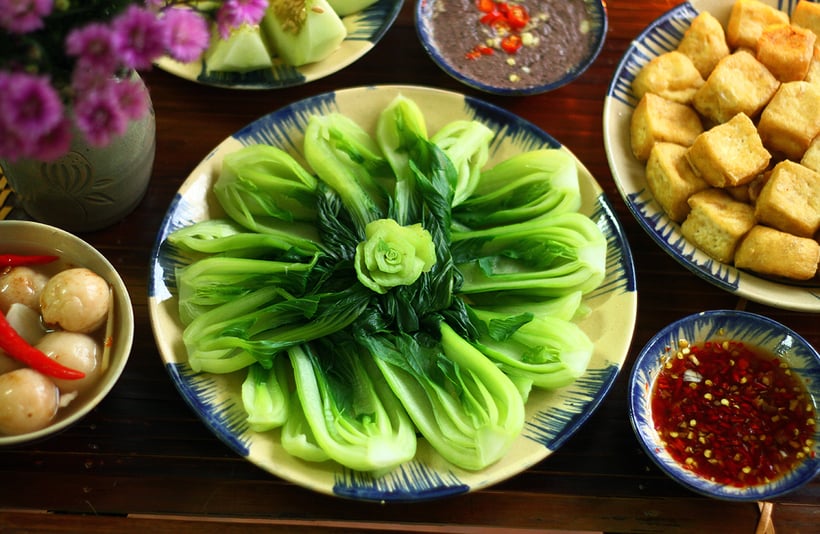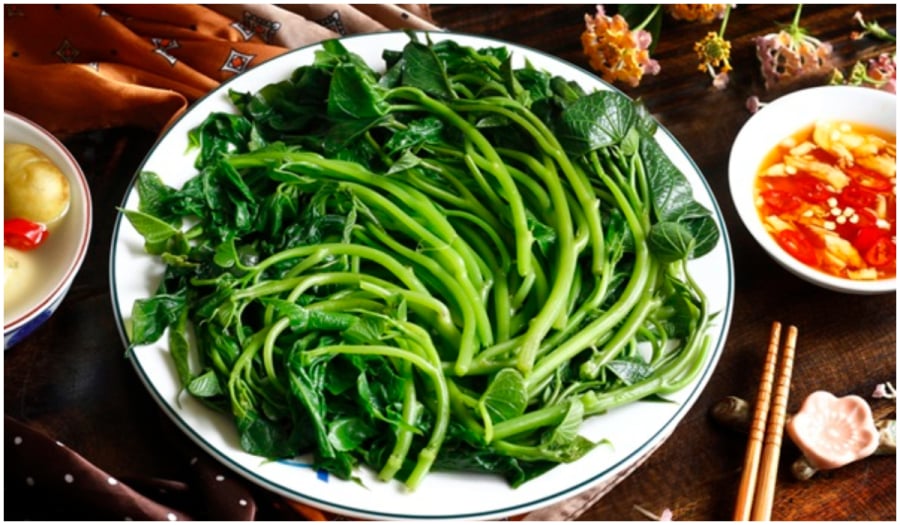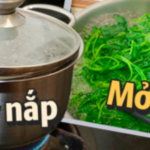To retain the vibrant green color of your vegetables and remove any residual pesticides and growth enhancers, try these tips when boiling your veggies!
Overwashing and Over-soaking Vegetables
It is a common practice for many home cooks to overwash and soak vegetables before boiling them to remove chemicals and dirt. However, this method only removes surface-level impurities and does not effectively eliminate harmful chemicals. A quick rinse is sufficient to wash away external dirt and debris.
Additionally, over-soaking vegetables can result in the loss of water-soluble vitamins, like vitamin C. The excessive soaking also leads to the leaching of essential nutrients, leaving the vegetables bland and less flavorful.

Overcooking Vegetables
According to nutrition experts, boiling vegetables on high heat cooks them quickly. Certain vegetables, like water spinach and potato stems, only need to be boiled for a brief period after the water starts boiling. Other vegetables, like Chinese cabbage and regular cabbage, require slightly longer cooking times. However, it is crucial not to overcook them.
For vegetables like broccoli, steaming or eating them slightly raw is the best option. However, many cooks, especially the elderly, tend to overcook vegetables due to their preference for well-done meals. This results in mushy vegetables that have lost most of their vitamins and flavor.
Overcooking vegetables causes a loss of essential vitamins. To retain the maximum amount of nutrients, it is crucial to control the cooking time and the temperature. When boiling vegetables, bring the water to a rolling boil first, and then add the vegetables. Adding vegetables to cold water can result in a 42% loss of vitamins.
Home cooks should be mindful of the cooking time required for different vegetables. For instance, water spinach cooks faster than Chinese cabbage. Always taste-test the vegetables to ensure they are cooked just right and not overdone.

Boiling with the Lid Off is Better
When boiling vegetables, it is recommended to keep the lid off. One common mistake is to boil vegetables with the lid on, as this causes the vitamins to evaporate, resulting in a loss of flavor and nutrients. Keeping the lid on also makes the vegetables bland and less appetizing.



































